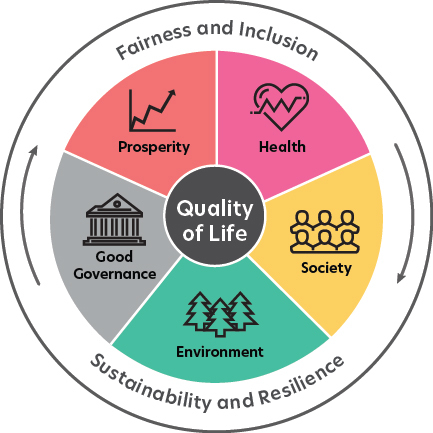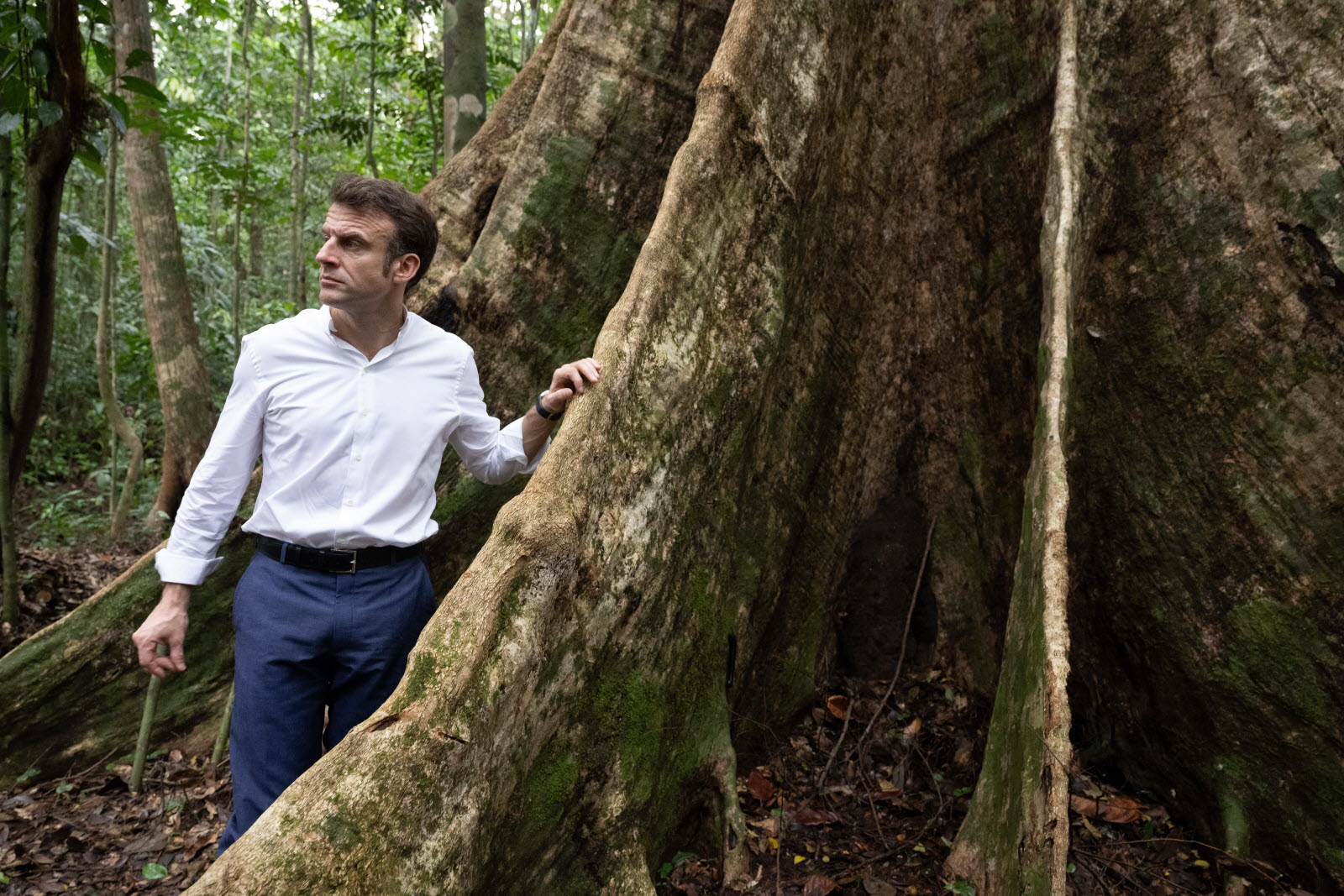Improving Youth Mental Healthcare In Canada: Lessons Learned From A Global Commission

Table of Contents
Addressing Systemic Barriers to Access
Access to mental healthcare for Canadian youth is plagued by significant inequities. Understanding and dismantling these barriers is crucial for improving youth mental health outcomes. Key issues include:
-
Geographic Disparities: Youth in rural and remote areas face substantial challenges accessing specialized mental health services. Long distances to treatment centers, limited transportation options, and a shortage of mental health professionals in these regions contribute to delayed or absent care. This disparity disproportionately affects Indigenous youth living in remote communities.
-
Socioeconomic Barriers: Low socioeconomic status is a major predictor of poor mental health outcomes and limited access to care. Financial constraints, lack of health insurance, and challenges navigating complex healthcare systems create substantial barriers. This includes affordability of services, including medication and therapy.
-
Indigenous Youth Mental Health: Indigenous youth experience significantly higher rates of mental health issues compared to their non-Indigenous peers. Historical trauma, systemic racism, and cultural insensitivity within the healthcare system contribute to these disparities. Culturally safe and appropriate care is essential.
-
Overcoming Barriers through Innovation: Telehealth and mobile mental health services offer promising solutions to overcome geographical barriers. These technologies can extend the reach of mental health professionals, providing access to remote communities and underserved populations. This includes virtual therapy sessions and remote monitoring of mental health.
Improving the Quality of Mental Healthcare Services for Youth
Even when access is available, the quality of youth mental health services needs significant improvement. This requires a multi-pronged approach:
-
Evidence-Based Treatments: Investing in evidence-based treatments, such as Cognitive Behavioral Therapy (CBT) and Dialectical Behavior Therapy (DBT), is paramount. These therapies have proven efficacy in treating various youth mental health disorders.
-
Early Intervention and Prevention: Early identification and intervention are critical in mitigating the long-term effects of mental illness. Schools play a vital role in early identification and implementing preventative programs.
-
Professional Training: Adequately trained mental health professionals are essential. This includes specialized training in adolescent and child psychology, trauma-informed care, and culturally sensitive practices, particularly for working with Indigenous youth.
-
Integrated Care: Integrating mental health services with physical healthcare and social services is crucial. This holistic approach ensures that young people receive comprehensive support addressing their physical, mental, and social needs.
Strengthening Community-Based Support Systems
Community-based support systems are fundamental to effective youth mental healthcare. These systems provide crucial early intervention and ongoing support:
-
School Mental Health Programs: Schools can serve as vital hubs for mental health support, providing access to counselors, early intervention programs, and mental health awareness education. This includes training teachers to identify early warning signs of mental health issues.
-
Family and Caregiver Involvement: Engaging families and caregivers in the treatment process is essential for positive outcomes. Support groups and educational resources for families can improve their ability to support their children.
-
Peer Support Programs: Peer support groups provide a safe and supportive environment for young people to connect with others facing similar challenges. These groups offer valuable peer-to-peer support and reduce feelings of isolation.
-
Comprehensive Prevention Programs: Addressing risk factors such as bullying, social isolation, and substance abuse through comprehensive prevention programs is crucial for promoting youth mental wellbeing.
Implementing Effective Mental Health Policies in Canada
Effective mental health policies are crucial for creating a system that supports the mental health needs of all Canadian youth:
-
Policy Review and Improvement: A comprehensive review of existing mental health policies is necessary to identify gaps and areas for improvement. This includes examining funding allocation, service delivery models, and legislation.
-
Increased Government Funding: Increased and sustained government funding for youth mental health services is essential to expand access, improve quality, and ensure the sustainability of programs.
-
New Legislation: New legislation could mandate improved access to mental health services, ensure the quality of care, and address systemic inequities.
-
Advocacy and Stakeholder Engagement: Strong advocacy from youth mental health organizations, healthcare professionals, families, and community leaders is vital for driving policy change and ensuring that youth voices are heard.
Conclusion
Improving youth mental healthcare in Canada requires a transformative, multi-faceted approach. Addressing systemic barriers to access, enhancing the quality of services, strengthening community support systems, and implementing effective policies are all crucial elements. Lessons from the global commission highlight the urgency and profound importance of these actions. A collaborative effort involving governments, healthcare providers, communities, and families is needed to create a system that ensures all Canadian youth have access to high-quality mental healthcare. Let's work together to create a Canada where all youth have access to high-quality mental healthcare. Join the conversation and advocate for improved youth mental health services in your community. Learn more about supporting initiatives focused on improving youth mental healthcare in Canada and help build a brighter future for young Canadians.

Featured Posts
-
 1 Mayis Emek Ve Dayanisma Guenue Tarih Boyunca Yasanan Arbedeler
May 03, 2025
1 Mayis Emek Ve Dayanisma Guenue Tarih Boyunca Yasanan Arbedeler
May 03, 2025 -
 The Future Of Doctor Who A Pause Or A Full Stop
May 03, 2025
The Future Of Doctor Who A Pause Or A Full Stop
May 03, 2025 -
 Latest Lotto Lotto Plus 1 And Lotto Plus 2 Draw Results
May 03, 2025
Latest Lotto Lotto Plus 1 And Lotto Plus 2 Draw Results
May 03, 2025 -
 Fortnite Reveals New Icon Skin Details And Release Date
May 03, 2025
Fortnite Reveals New Icon Skin Details And Release Date
May 03, 2025 -
 1 Mayis Emekcilerin Direnisi Ve Tarihteki Arbedeler
May 03, 2025
1 Mayis Emekcilerin Direnisi Ve Tarihteki Arbedeler
May 03, 2025
Latest Posts
-
 Gabon Macron Annonce La Fin De L Ere Francafrique
May 03, 2025
Gabon Macron Annonce La Fin De L Ere Francafrique
May 03, 2025 -
 Macron Et Sardou Un Diner Tendu Ca Vient Du Ventre
May 03, 2025
Macron Et Sardou Un Diner Tendu Ca Vient Du Ventre
May 03, 2025 -
 Rome L Ombre De Macron Plane T Elle Sur L Election Papale
May 03, 2025
Rome L Ombre De Macron Plane T Elle Sur L Election Papale
May 03, 2025 -
 Macron Defend Un Patriotisme Economique Europeen Face Au Defi De L Intelligence Artificielle
May 03, 2025
Macron Defend Un Patriotisme Economique Europeen Face Au Defi De L Intelligence Artificielle
May 03, 2025 -
 La Serie Tf 1 Joseph L Ascension Fulgurante De La Creme De La Crim
May 03, 2025
La Serie Tf 1 Joseph L Ascension Fulgurante De La Creme De La Crim
May 03, 2025
